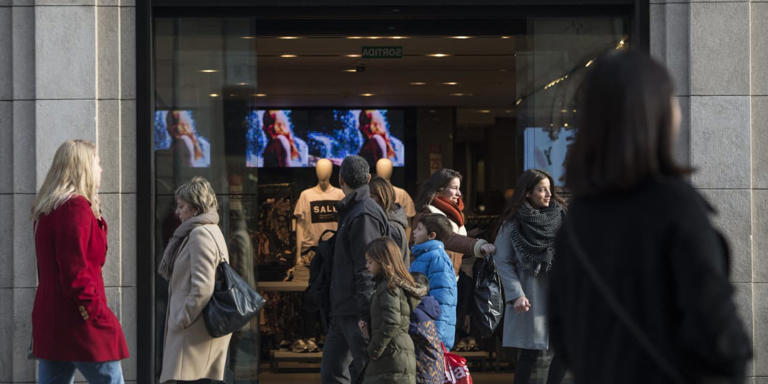Inditex, the powerhouse behind Zara and other popular fast-fashion brands, revealed impressive financial results for the first quarter of the fiscal year, showcasing its resilience amidst escalating competition, particularly from emerging players like Shein. The company reported a robust 7.1% surge in first-quarter sales, reaching an impressive €8.2 billion ($8.9 billion), accompanied by a notable 11.1% increase in pre-tax profits, totaling €1.7 billion. These figures, in line with consensus forecasts from analysts, sparked a notable 4% increase in Inditex’s shares on Spain’s stock exchange, marking a significant 43% growth over the past 12 months.
In response to the increasingly competitive retail landscape, Inditex unveiled ambitious plans to bolster its sales by approximately 5% annually from 2024 to 2026. This strategic vision involves expanding its footprint in the 214 global markets it currently operates in, coupled with a concerted effort to amplify its online sales channels, which accounted for a notable 25% of the company’s total revenue in the preceding fiscal year. Faced with mounting competition from Shein, a rapidly ascending player in the fast-fashion arena, Inditex has intensified its focus on its value-oriented clothing brand, Lefties, with the aim of capturing a larger share of the Gen Z market segment, where Shein has established dominance.
Shein, founded by Chinese entrepreneur Chris Xu in 2008, has experienced meteoric growth, with estimated annual sales surpassing a staggering $30 billion, although precise figures remain undisclosed due to the company’s private ownership status. In response to Shein’s formidable rise, Inditex has strategically aligned with Chinese e-commerce giant JD.com to introduce nearly 1,000 products from its premium Massimo Dutti brand on JD.com’s online platform, targeting enhanced sales penetration in China, the world’s largest e-commerce market.
Recognizing the imperative to align with evolving consumer preferences and environmental sustainability imperatives, Inditex has committed to investing a substantial €1.8 billion in 2024 and 2025 to revamp its logistics capabilities. This initiative will integrate cutting-edge technology while adhering to the highest environmental, social, and governance (ESG) standards. Furthermore, the company aims to bolster store security across its flagship Zara brand and other subsidiaries, introducing a new system set to debut this year.
In contrast, B&M European Value Retail, a budget retailer, reported a commendable 14% increase in pre-tax profits to £498 million ($635.9 million) for the full fiscal year, albeit falling slightly short of analysts’ expectations. Despite achieving a respectable 10.1% revenue growth to £5.5 billion in fiscal year 2024, B&M European Value Retail witnessed a 6% decline in its shares on the London stock exchange, reflecting investor apprehensions regarding its performance and future prospects.
As both Inditex and B&M European Value Retail navigate the dynamic and fiercely competitive retail landscape, characterized by evolving consumer preferences and heightened market competition, their strategic decisions and operational initiatives will be closely scrutinized by industry observers and investors, shaping the trajectory of the retail sector in the years to come.
